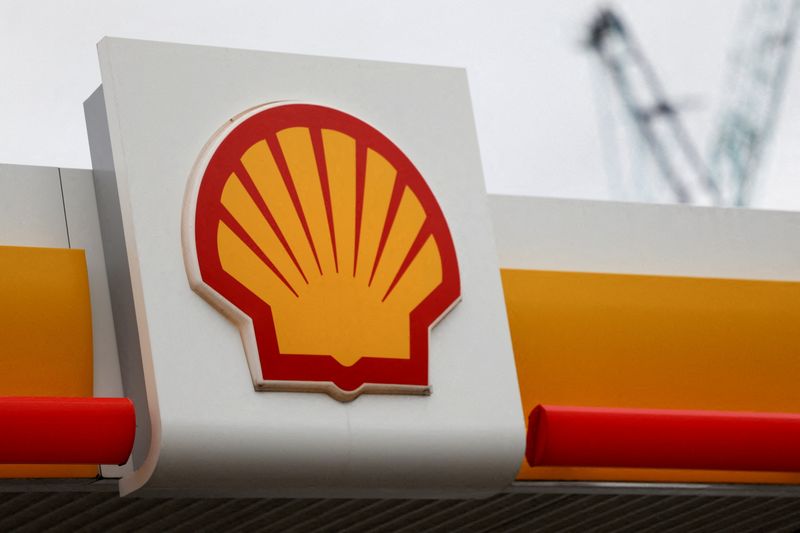By Ron Bousso
LONDON (Reuters) - Shell (LON:SHEL) will cut at least 15% of the workforce at its low-carbon solutions division and scale back its hydrogen business as part of CEO Wael Sawan's drive to boost profits, it said on Wednesday.
The staff cuts and organizational changes come after Sawan, who took the helm in January, vowed to revamp Shell's strategy to focus on higher-margin projects, steady oil output and grow natural gas production.
Shell will cut 200 jobs in 2024 and has placed another 130 positions under review as part of a drive to reduce the headcount in the unit, which numbers around 1,300 employees, the company confirmed in response to a query from Reuters.
Some of these roles will be integrated into other parts of Shell, which employs more than 90,000 people, the company added.
"We are transforming our Low Carbon Solutions (LCS) business to strengthen its delivery on our core low-carbon business areas such as transport and industry," the company said.
Shell shares were down 0.2% by 1435 GMT.
The LCS operations include the hydrogen and other businesses looking at decarbonizing the transport and industry sectors, but do not include the renewable power business.
Shell managers last week held several town hall meetings with the LCS division where the job cuts and organizational changes were announced, company sources said.
The division also includes Shell's carbon capture and storage and nature-based solutions businesses, which will not be impacted by the current round of cuts, the sources said.
The main focus of the changes has been the hydrogen business.
Shell plans to sharply scale back its hydrogen light mobility operations, which develop technologies for light passenger vehicles, and will focus on heavy mobility and industry, the company said.
It will also merge two of four general manager roles in the hydrogen business, Shell said.
The retreat from the light mobility sector follows the departure of the business's manager Oliver Bishop several months ago. Bishop today leads rival BP (NYSE:BP)'s global hydrogen mobility business.
Shell was one of the early backers of hydrogen-fuelled cars, but it has in recent years closed a number of hydrogen fuelling stations around the world, including in Britain, as consumers opted instead for electric vehicles.
The company last year started building a 200 megawatt electrolyser plant in the Netherlands, Europe's largest, to produce zero-carbon, or green, hydrogen.
It also applied for a grant to develop a low-carbon hydrogen hub in Louisiana, but the project was not among seven announced earlier this month that will share $7 billion in U.S. federal grants to jump-start the emerging industry.
"Our global hydrogen portfolio remains a key part of our efforts to address the commercial and technical challenges in scaling our Low Carbon Solutions business," Shell said.
"We will be disciplined in only making investments with the highest chance of creating value and lowering emissions."
NET ZERO
Sawan said last week that Shell is changing its "pathway" towards meeting its ambition to become a net zero carbon emitting company by 2050.
"For avoidance of doubt, what hasn't changed is the destination that we have set for ourselves," Sawan told to Energy Intelligence Forum in London.
Sawan came under pressure internally last month after two employees issued a rare open letter urging him not to scale back investments in renewable energy, sparking an internal debate.

Shares of Shell and its European peers BP and TotalEnergies (EPA:TTEF) have come under pressure in recent years as investors fret over future returns as they lower oil and gas production.
U.S. rivals Exxon Mobil (NYSE:XOM) and Chevron (NYSE:CVX) have doubled down on fossil fuel production, announcing large acquisitions of oil companies in recent weeks.